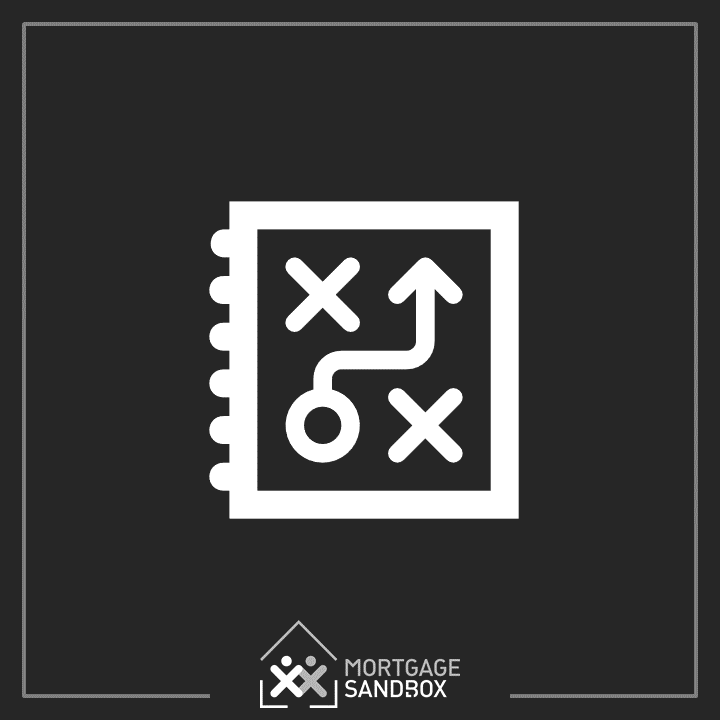Which Home Buying Strategy should you employ?
With your home buying budget, you will have an idea of what you can qualify to buy, but that may mean your monthly spending on housing will be a lot more than what you’re used to. Just because the bank will lend you a lot of money, doesn’t mean you should take it. Every individual and family has different priorities when it comes to buying a house. This article will explain a number of approaches that we believe are best.
At Mortgage Sandbox we see 4 common strategies and each has its benefits and drawbacks. They are:
Big Bang
Baby Steps
Lifestyle Protection
Strategic Leverage
Big Bang - Highest Affordable price point.
Photo by Greg Rakozy
The big bang strategy suits those that strongly desire that dream home and are willing to make some lifestyle sacrifices to get it. This strategy requires you to beg, borrow, and steal to get the largest and nicest home possible because it may become unaffordable in a few years time.
Key Steps:
Use all available savings for the down payment.
Get help from family for the down payment.
Apply for the largest mortgage possible.
Benefits
Lock in the property price in case home prices rise at a higher rate than your income and savings.
You should not need to move for a long time… this is your dream home.
Drawbacks
You are house rich and cash poor.
If interest rates rise a lot, it may put financial stress on you and your family.
High monthly interest payments.
Baby Steps – Lowest cost home that meets your requirements
Photo by Alexander Dummer
Taking baby steps is often the best approach in life, and particularly for those of you that prefer a more conservative approach when it comes to borrowing and spending money. In terms of homebuying, the baby steps strategy involves buying a comfortable starter home with a small mortgage and then upgrading every 5-10 years.
Key Steps:
Apply for the smallest mortgage possible.
Use all available savings for the down payment.
Benefits
You are in the market and have a home of your own that you can make improvements to.
You are not cash poor and you are paying the least amount of interest possible to the bank.
You’ll learn more about the type of home you want long-term each time you upgrade.
Drawbacks
You will have to pay realtor fees each time you sell a home to upgrade.
Prices for the next home you’d like may rise out of reach.
All your savings go into the down payment.
You’re unlikely to be living in your dream home.
Lifestyle Protection - Allows you to maintain your preferred lifestyle.
Photo by Daniel Frank
This game plan requires you to work back from your preferred lifestyle to determine what your monthly payments can be. By taking this approach your ideal lifestyle will remain intact and you’ll be a homeowner! Whether it’s skiing through out the winter, or playing golf in the summer, our favourite activities add up and to some, these things are not worth losing.
Key Steps:
Apply for the exact mortgage amount that allows you to live the lifestyle you want.
Use minimum savings for the down payment.
Benefits
You are in the market and have home of your own that you can make improvements to.
You are borrowing a comfortable amount of money from the bank that allows you to do the things you love most in life.
Drawbacks
You aren't buying the largest or nicest home possible.
You will have to pay realtor fees each time you sell a home to upgrade.
Prices for the next upgrade may rise out of reach.
Strategic Leverage - Smallest possible down payment.
Compared to other type of loans, a mortgage has one of the lowest interest rates for borrowing money. You may want to make the most of this low rate by borrowing as much as possible, using minimum savings, and investing the rest elsewhere. It will probably mean that you won’t be living in the ultimate home, but you will have a home under your belt and other investments growing in value.
Key Steps:
Apply for the largest mortgage possible.
Use minimum savings for the down payment.
Invest extra savings in a diversified portfolio.
Benefits
Mortgages have a low interest rate, so you borrow as much as possible.
You invest your savings and earn a return higher than the interest charged on the mortgage.
You benefit from the growth in your investments and the appreciation in house price while taking advantage of the cheap mortgage money lent to you by the bank.
Drawbacks
You aren't buying the largest or nicest home possible.
In the short run, your investments could have a bad year and earn less you less than the interest on the mortgage.
Conclusion
These strategies are high-level and you should spend time tailoring one to your unique situation. Work with your Financial Advisor to determine the best strategy for you and your family. They are in the best position to understand your risk appetite, your financial commitments, and what you can stand to earn on investments that aren’t cashed in to help pay for a home.








